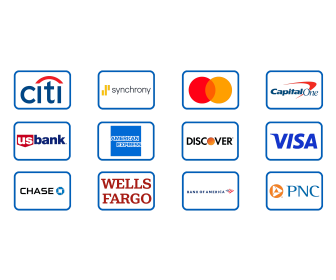Credit Card Mistakes You Should Avoid
Credit cards can be powerful financial tools — offering rewards, protection, and flexibility. But they can also become traps if misused. Many cardholders fall into common habits that quietly hurt their credit scores or cost them money over time. Here are the most common credit card mistakes you should avoid and how to steer clear of them.
1. Carrying a Balance Month to Month
One of the biggest myths about credit cards is that carrying a balance helps your credit score. It doesn’t — it just costs you interest. Paying your full balance every month keeps your score strong and prevents unnecessary debt from accumulating.
- Truth: You don’t need to carry a balance to build credit.
- Goal: Pay in full before the due date to avoid all interest charges.
- Tip: Set up autopay for the full statement balance each month.
2. Missing or Late Payments
Even one late payment can drop your credit score by dozens of points and stay on your report for years. Payment history makes up about 35% of your credit score, making this mistake the most damaging — and most avoidable.
- Set reminders: Use app alerts, email notifications, or a budgeting tool.
- Automate: Schedule minimum payments automatically to avoid forgetting.
- Grace periods: Some issuers offer short extensions — use them sparingly.
3. Maxing Out Your Credit Limit
Using too much of your available credit — even if you pay on time — can hurt your score. This is called your credit utilization ratio. Staying under 30% of your limit is good, but under 10% is even better.
- Example: If your limit is $1,000, try to keep your balance under $300.
- Pay early: Make multiple payments per month to lower reported balances.
- Request a higher limit: It can help your utilization ratio without extra spending.
4. Ignoring Fees and Interest Rates
Annual fees, late fees, and high APRs can quietly drain your rewards and savings. Always know your card’s terms — especially when a 0% intro APR period is ending or when promotional rates expire.
- Check your APR: Most cards charge over 20% interest if you carry a balance.
- Avoid cash advances: They accrue interest immediately, often at higher rates.
- Compare before applying: Some no-fee cards offer better long-term value than premium ones.
5. Applying for Too Many Cards Too Quickly
Each credit card application creates a hard inquiry on your report, which can temporarily lower your score. Applying for multiple cards within a short time can signal risk to lenders and make approvals harder.
- Plan ahead: Space out applications by at least 3–6 months.
- Focus on fit: Choose cards that match your spending habits, not just bonuses.
- Reconsider if denied: Check your credit report before applying again.
6. Closing Old Accounts Too Soon
Closing a long-standing credit card shortens your credit history and can raise your utilization ratio — both of which may lower your score. Unless the card has a high annual fee you can’t justify, keeping it open is often smarter.
- Keep it active: Use it for small recurring payments to maintain account history.
- Ask for a downgrade: Switch to a no-fee version instead of closing it.
- Age matters: Your oldest account adds stability to your credit profile.
7. Chasing Rewards Without a Plan
Reward programs can be great — until they cause overspending. If you spend extra just to earn points or meet a minimum threshold, the “rewards” can end up costing more than they’re worth.
- Stick to your budget: Don’t buy things you wouldn’t otherwise just for points.
- Redeem smartly: Cash back and travel redemptions can differ in real value.
- Don’t chase bonuses blindly: Only apply for new cards when the timing fits your finances.
Expert insight: Most credit card mistakes happen not from big decisions, but from small habits — forgetting a due date, ignoring a balance, or chasing “free” rewards. Simplicity and consistency always win over complexity and risk.
Final Thoughts
Credit cards can either build your financial power or drain it, depending on how you use them. Avoiding common mistakes — like carrying a balance, missing payments, or closing old accounts — keeps your credit strong and your finances healthy. The best strategy isn’t flashy; it’s steady, intentional, and built on awareness.
Not financial advice. Card terms, fees, and credit score impacts vary by issuer and jurisdiction. Always read your card’s agreement and payment terms before making decisions.



